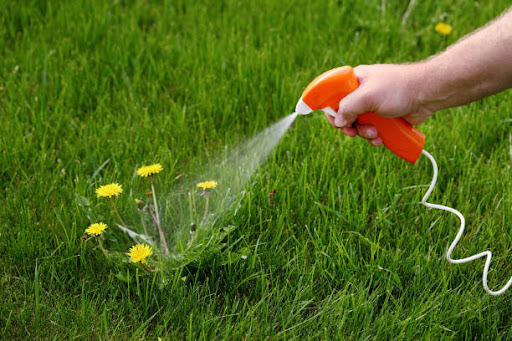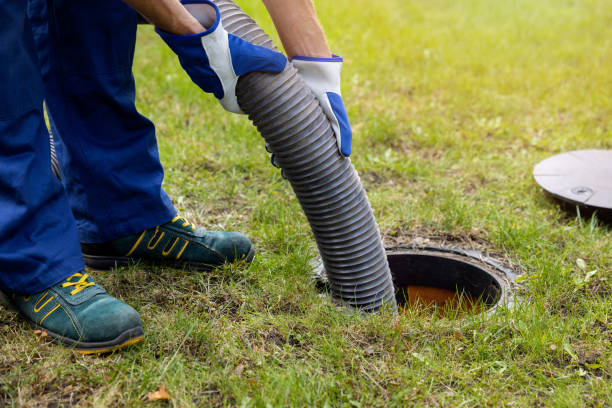Homeowners in Australia understand that weeds are the biggest enemy of their lawns. Weeds can have a devastating effect on your home’s aesthetic value and its resale value. Also, if you have other crops, weeds can quickly overrun them, choking out the plants you’ve worked so hard to cultivate.
In order to protect your lawn and garden, you may be tempted to use weed killer. Weed killers are designed to kill weeds by targeting their leaves or roots. However, you should be aware of some disadvantages of using weed killers before using them.
The Common Disadvantages of Using Weed Killers in Crops
The usefulness of weed killers cannot be overemphasized. Weed killers have helped farmers and homeowners to achieve greater yields and better-looking lawns. However, you should be aware of some disadvantages of using weed killers before using them. Here are a few of those disadvantages.
1. They can be harmful to the environment.
When you use weed killers, the chemicals can run off into waterways and contaminate them. This can harm aquatic plants and animals, and potentially make people sick if they consume contaminated water. The chemicals that are used to make them can also be harmful to pets, children, and adults if they’re ingested or come into contact with skin.
2. They can kill helpful plants and animals.
Some weed killers are non-selective, meaning they will kill any plant they come into contact with – not just weeds. This can include your flowers, vegetables, and other crops. Also, many weed killers contain glyphosate, which is harmful to bees. This is a problem because bees are essential for pollinating plants. The harm that is caused when insects and other animals are killed can have a significant impact on the environment.
3. They can make your soil less healthy.
Weed killers can also make your soil less healthy. Chemicals in weed killers can bind to essential minerals in the soil, making them unavailable to plants. This can lead to stunted growth or even death. Weed killers may alter the PH levels of your soil, making it more acidic or alkaline. This can make it difficult for plants to grow in the future.
4. They can be expensive.
Weed killers can be expensive, especially if you need to use a lot of them to treat a large area. Also, you may need to purchase different types of weed killers to target different types of weeds. However, while there are cheaper options out there, the level of effectiveness that they offer may not be worth the money.
All in all, while weed killers can be effective at killing weeds, there are some disadvantages that you should be aware of before using them. Weigh the pros and cons carefully to decide if they’re right for you.
How To Deal With The Negative Effects of Weed Killers on Crops
Weed killers can have some negative effects on crops, but there are ways to deal with them:
1. Choose a selective weed killer:
A selective weed killer will target specific weeds while leaving your crops intact. This is the best option if you’re concerned about harming your plants. Also, a few weed killers don’t have excessive negative effects on your soil and also on the general environment.
2. Apply the weed killer carefully:
Be sure to apply the weed killer only to the areas that need it. This will help to avoid harming other plants or animals. This is the best if you have a uniform crop or grass on your turf and only want to target weeds.
3. Use organic weed killers:
Organic weed killers are made from natural ingredients and are therefore less harmful to the environment. However, they may not be as effective as chemical weed killers. There is a need to balance efficacy and environmental friendliness when using a weed killer.
4. Pull the weeds by hand:
This is the most labor-intensive option, but it’s also the safest for your crops and the environment. You can also use a hoe or other gardening tool to remove weeds without harming your plants. If you have a small garden, this may be the best option for you.
5. Use mulch:
Mulch can help to prevent weeds from growing in the first place. It can also help to retain moisture in the soil and keep your plants healthy. This is a good option if you want to avoid using weed killers altogether.
6. Follow the directions:
One of the biggest mistakes that users of weed killers in their turfs and gardens make is not following the directions on the label. Weed killers are powerful chemicals that can be harmful if not used correctly. Always read the label before using a weed killer and follow the directions carefully.
Weed killers can be effective at killing weeds, but there are some disadvantages to using them. If you can exercise caution about how you use them and follow the directions on the label, you can still use weed killers without doing too much harm. Just be sure to weigh the pros and cons carefully before using them.
How Can Lawn care Experts Help You Mitigate The Negative Effects of Using Weed Killer In Crops?
If you’re concerned about the negative effects of using weed killer on your crops, lawn care experts can help you mitigate those effects. Here are a few ways they can help:
These experts can help you choose the best environmentally friendly products, that are still effective in Weed control. They can also help you to apply the products correctly so that your crops are not harmed in the process.
Lawn care experts have the experience and knowledge to identify which weeds are causing problems in your garden and target them specifically. This helps to minimize collateral damage to your other plants.
Conclusion
Weed killers can have some negative effects on crops, but there are ways to deal with them. Be sure to follow the directions on the label and take care when using them. With a little bit of caution, you can still use weed killers without doing too much harm. Also, there are many organic options out there, and if you work with a reputable lawn care expert, they can help you choose the best weed killers with the least harmful chemicals.










Leave a Reply